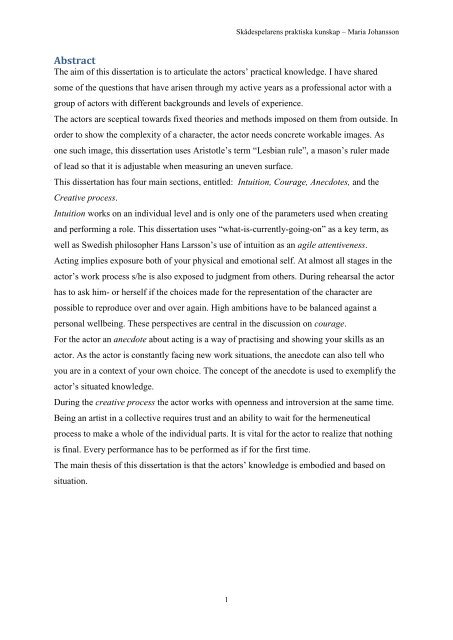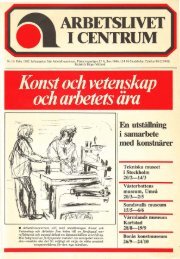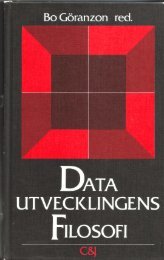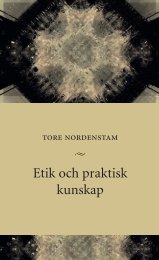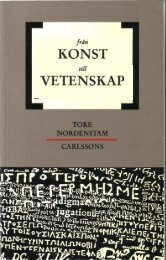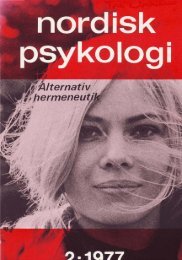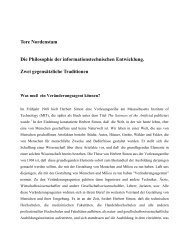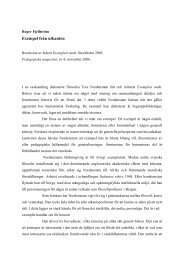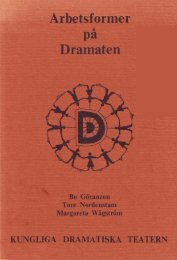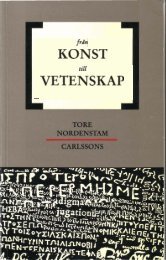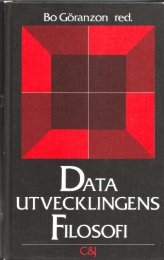Skådespelarens praktiska kunskap
Skådespelarens praktiska kunskap
Skådespelarens praktiska kunskap
Create successful ePaper yourself
Turn your PDF publications into a flip-book with our unique Google optimized e-Paper software.
1<br />
<strong>Skådespelarens</strong> <strong>praktiska</strong> <strong>kunskap</strong> – Maria Johansson<br />
Abstract<br />
The aim of this dissertation is to articulate the actors’ practical knowledge. I have shared<br />
some of the questions that have arisen through my active years as a professional actor with a<br />
group of actors with different backgrounds and levels of experience.<br />
The actors are sceptical towards fixed theories and methods imposed on them from outside. In<br />
order to show the complexity of a character, the actor needs concrete workable images. As<br />
one such image, this dissertation uses Aristotle’s term “Lesbian rule”, a mason’s ruler made<br />
of lead so that it is adjustable when measuring an uneven surface.<br />
This dissertation has four main sections, entitled: Intuition, Courage, Anecdotes, and the<br />
Creative process.<br />
Intuition works on an individual level and is only one of the parameters used when creating<br />
and performing a role. This dissertation uses “what-is-currently-going-on” as a key term, as<br />
well as Swedish philosopher Hans Larsson’s use of intuition as an agile attentiveness.<br />
Acting implies exposure both of your physical and emotional self. At almost all stages in the<br />
actor’s work process s/he is also exposed to judgment from others. During rehearsal the actor<br />
has to ask him- or herself if the choices made for the representation of the character are<br />
possible to reproduce over and over again. High ambitions have to be balanced against a<br />
personal wellbeing. These perspectives are central in the discussion on courage.<br />
For the actor an anecdote about acting is a way of practising and showing your skills as an<br />
actor. As the actor is constantly facing new work situations, the anecdote can also tell who<br />
you are in a context of your own choice. The concept of the anecdote is used to exemplify the<br />
actor’s situated knowledge.<br />
During the creative process the actor works with openness and introversion at the same time.<br />
Being an artist in a collective requires trust and an ability to wait for the hermeneutical<br />
process to make a whole of the individual parts. It is vital for the actor to realize that nothing<br />
is final. Every performance has to be performed as if for the first time.<br />
The main thesis of this dissertation is that the actors’ knowledge is embodied and based on<br />
situation.


